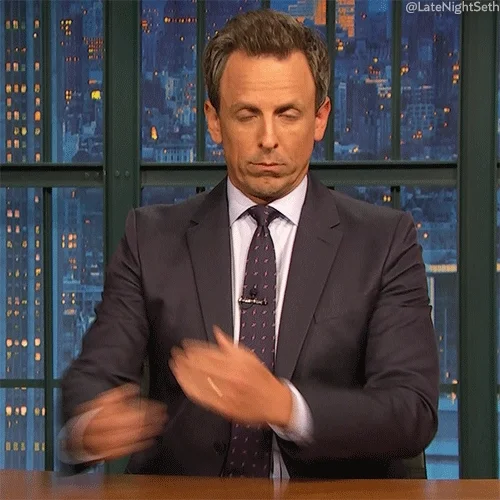Not to beat a dead horse, but I think the way this video – and the media in general, for the most part – frames Simone’s decision is a little off-base. She pulled out of TF because had she continued, she almost certainly would have gotten injured, and, as she said in the press conference, hurt her team’s score. You can see, in the series of still images of her TF vault in that video, how completely lost she was. By pulling out of the rest of the final, she was “choosing herself” in that she was choosing not to break her own neck.
This is not to demean the focus of the importance of mental health. It’s good that attention is being brought to struggles with mental health in sports, and in life in general. Athletes at any level should be able to put the brakes on when they feel overwhelmed, anxious, or depressed. But is that actually what happened with Simone? Obviously she was under enormous pressure, and her demeanor the past few years suggested that it was weighing on her. But, in the moment, she pulled out because she had the twisties. Did her mental health play a role in that? That’s the subject of another long thread on this forum, but the answer is we don’t know.
What she actually did – withdraw because she knew she would hurt herself otherwise – is equally precedent-setting and worthy of attention. How many athletes know something is wrong, that a part of their body is hanging on by a thread and it’s dangerous to keep going, but continue anyway? And how many end up getting hurt? Saving your body, even when a title is on the line, should be normalized as well.
In the end, it’s a matter of nuance. Simone showed the world you can stop if you need to, and that is a crucial message. But I think it is worth emphasizing that athletes can have any number of reasons not to power through, and they should be given the power to voice them.
I know she mentioned mental health as a factor in the post-TF press conference, and of course it was a theme of the tour. So it must have played a role, but I imagine she would have powered through the Olympics if not for the twisties–as she had, over and over, for the previous three years, even as she probably had been enduring the same sort of mental health issues. Someone here asked at the time why she didn’t just tell the reporters at the press conference that she had a mental block. She probable would have gotten less flak for it. At least in the US, people still consider mental health problems as a type of weakness, or laziness, or malingering. If it ain’t bleeding, and it’s all in your head, then get over it and get on with it. But even the racist uncle posting rants on Twitter understands a mental block, because baseball players get them, as do golfers and basketball players. Many of them power through, though, because those slumps aren’t life-threatening. I’m not sure why USAG didn’t bother to push that fact – that a mental block in gymnastics is uniquely dangerous – to the media more during the Olympics. They way the whole situation was handled, PR wise, and the way it is still discussed in the media now, strikes me as strange.

